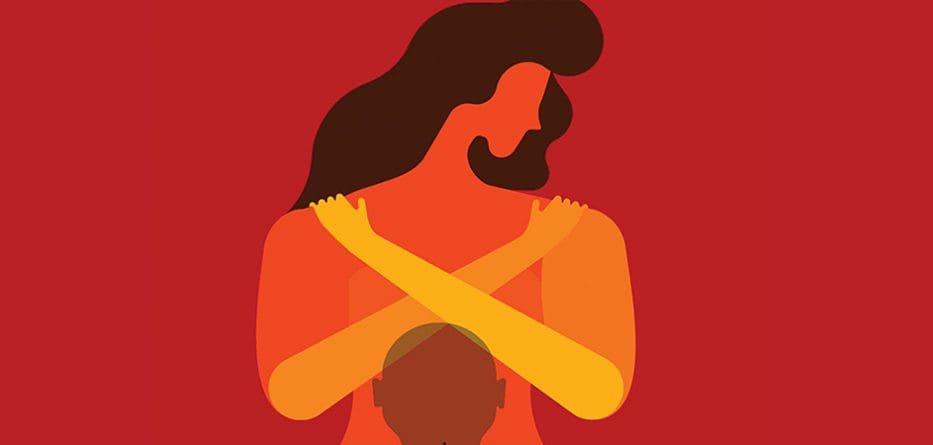
Photo Credit: UN Women
With information from UN Women
Recently, I was part of a conference entitled, “Leading With Values: Vincentian Family Contributions to a Sustainable World,” organized by DePaul University. What struck me was the focus upon hope. Sustainability conversations can delve into heavy issues, such as climate change, overconsumption, and plastic pollution. Focusing on sobering data about the planet’s future can cause hand-wringing and dejection.
But, instead, the Conference inspired people to commitment because it focused upon stories of hope. Hope related to planting trees in the Amazon and Togo. Hope connected with sustainable practices on university and religious community campuses. Hope in hearing of turning plastic bottle caps into benches. Hope arising from youth pursuing legal actions related to the environment. One walked away not feeling paralyzed, but prompted to pursue positive change.
The United Nations is well aware of the world’s problems and the sobering statistics. But like the sustainability conference organizers, it also knows that sharing good practices leads to hope, and, in turn, action. Addressing global problems is a two-sided coin—naming horrendous realities, hard as they may be to hear, and then stirring hope into sustainable solutions.
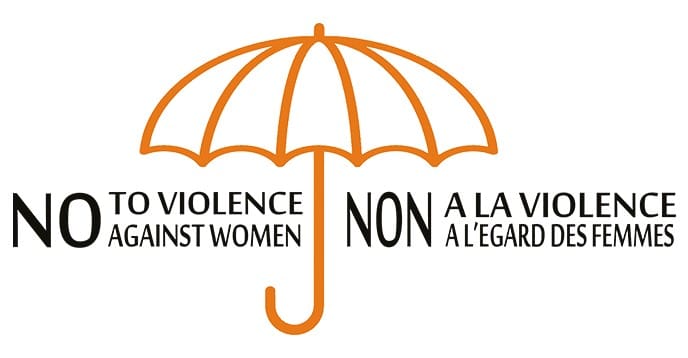
Photo Credit: UN News
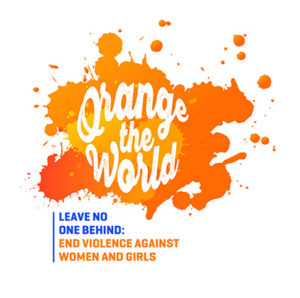
Photo credit: UNESCO
INTERNATIONAL DAY FOR THE ELIMINATION OF VIOLENCE AGAINST WOMEN
November 25 is the International Day for the Elimination of Violence Against Women. It is followed by 16 days of action to end violence against women. It’s a time when people wear orange, because orange symbolizes a brighter, violence-free future. They also consider how to make a difference.
The United Nations will commemorate this day with a virtual event set from 10-11:30 p.m. Eastern Time, on Wednesday, November 25. It will be cosponsored by UN Women and the UN Secretary General’s Unite Campaign to end violence against women. Click here for information about the event and see below for the attachment with a prayer intention for each day of the 16 days of Action to Eliminate Violence Against Women.
THE DIFFICULT DATA
One spinoff from the COVID-19 crisis has been “The Shadow Pandemic”–an increase in violence against women. France, for example, reports an increase in domestic violence of 30 percent since March 17, according to UN Women. Calls to domestic help lines have increased in some countries, and shelter requests are on the uptick in places such as the US, Spain, Canada, the United Kingdom, and Germany. Domestic violence shelters are reaching capacity. Some perpetrators are engaging in cyber violence. Almost 18 percent of women and girls aged 15 to 49 years who have ever been in a relationship have experienced physical or sexual violence by an intimate partner in the previous 12 months. Living in confined quarters during lockdown, combined with security, health, and financial concerns, contributes towards violence against women in many locations. (UN Women)
HOPEFUL ACTION
“So,” you say, “tell me about hopeful responses to violence against women.”
UN Women offers examples of some good practices:
- In Italy, instead of survivors having to leave the house of an abuser, prosecutors have ruled that, in situations of domestic violence, the perpetrator must leave the family home.
- In the Eastern Cape, South Africa, support is being allocated to accelerate community-level service delivery for survivors of gender based violence, with dedicated focus on women in the informal economy, as well as young girls and women affected by HIV and AIDS.
- A Canadian aid package included $50 million to support shelters for those facing sexual violence and other forms of gender-based violence. In Quebec and Ontario, domestic violence shelters are deemed as essential services and must remain open during the lockdown.
- In France, as shelters exceed capacity, alternative accommodation is being provided for domestic violence survivors by hotels, and other countries including in the Caribbean are also exploring alternative accommodations.
- In Madrid, Spain, an instant messaging service with a geolocation function offers an online chat room that provides immediate psychological support to survivors of violence.
- In Colombia the government has issued a decree to guarantee continued access to services virtually, including legal advice, psychosocial advice, police and justice services including hearings.
WHAT CAN WE DO AS A VINCENTIAN FAMILY?
As we honor the International Day for the Elimination of Violence Against Women, what can we do as a Vincentian Family to inspire hope? Donate to a domestic violence shelter? Volunteer at one? Advocate to our governmental leaders for special measures to protect women and children from violence during the COVID-19 pandemic and beyond? Support any of our own services which serve to protect women and children from violence or helps meet their need for food, health care, counseling, or shelter?
Let’s be purveyors of hope!
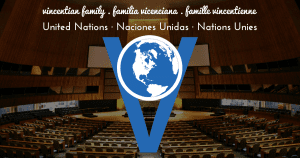



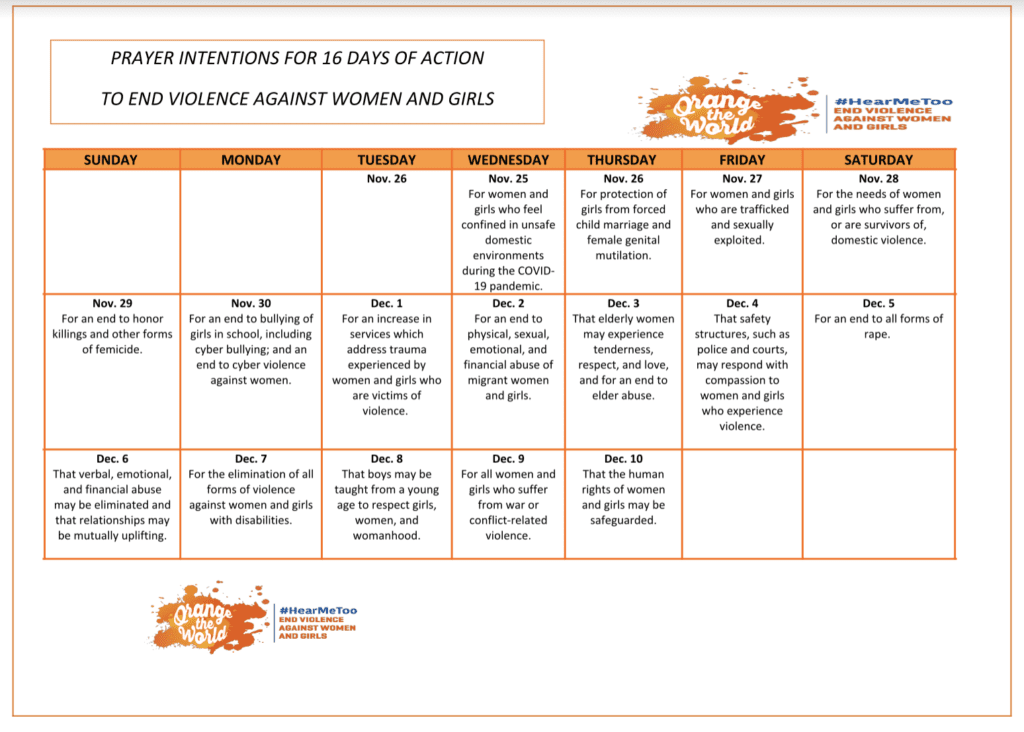




Thanks, Margaret. A timely piece of information.
Great article Sr Margaret, a problem getting worse not better but glad for the focus on hope, thanks
Thank you, Margate, for sharing your information. FYI: our local Ladies of Charity have a relationship with an Evansville shelter for victims (women and children) of domestic violence. They have been providing monetary contributions, hospitality bags for new clients and meals during the Christmas season. The Ladies have been challenged due to the virus. They had to cancel their annual fundraiser this month. However, there have been some small donations.
Thank you for the work you and all those at the United Nations
Blessings upon all of you as we celebrate our up-coming Community Feasts and, of course, Thanksgiving!
Thanks fo rpassing these ideas along to us, Margaret. Unfortunately this situation keeps escalating and caring for the abused women and children is critical. Also need to find ways to assist the men in understanding themselves and changing their behavior. Major task and I am not sure what ideas are being implemented to change this dreadful reality. Anyone know so we might use them?